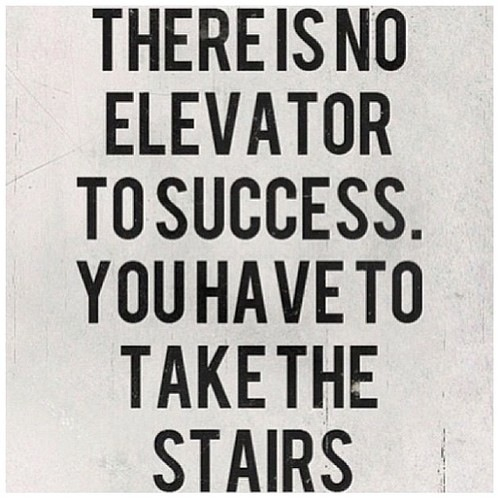
Procrastination is one of the unfortunate methods for dealing with a lot of people and things you do not like or wish to deal with, including your girlfriend/spouse, boss, job, chores, and sometimes even yourself. While most everyone procrastinates to some degree, some people do it more often than others, creating a veritable merry-go-round of self-inflicted defeat.
But you couldn’t possibly be one of those people; or could you?
Red Flags: Recognize the Warning Signs
One of the biggest problems with procrastination isn’t just the lack of accomplishment, but the inability to recognize that your life is being severely handicapped by it. These are the nine most common red flags.
- You are constantly late to everything, and can rarely keep appointments.
- You disappoint a lot of people with broken promises.
- You have difficulty not only starting projects but following through to their completion.
- You often find yourself in a state of disorganization.
- You often feel like your too busy to get anything done.
- You reward yourself first and then get to work afterward (a.k.a. Grasshopperism).
- You can rarely estimate how long it is going to take to do something.
- You have a hard time saying, no.
- You believe that your best work is often conceived by waiting to the last minute.
Types: Which Type of Procrastinator are You?

Considering that there are many different reasons that people procrastinate, it should come as no surprise that there is more than one type of procrastinator. There is the thrill-seeker, work dodger, passive-aggressive avoider, and non-decision maker.
Thrill-Seeker –
(“I Thrive”)
This is the person who prefers to wait until the last minute because it gives them a euphoric rush. It is because of this nervous blast of energy that they also believe they do their best work this way. These people believe that they are more productive under pressure, so they wait until the pressure builds and figure they will get it done more easily (but this is mostly just a lie that they are repeatedly telling themselves).
Work Dodger –
(“I Can’t”)
This person finds themselves putting off projects, either because they don’t want to do them, don’t know how to, or they fear failing. So, instead of facing the fact they might not be good at something as they have driven within their own mind, they hide behind the excuse that they are either too busy or not interested. In many ways, procrastination in this form becomes a coping strategy for day-to-day pressures and experiences. Even if they get some things accomplished, there will always be new demands placed on them, so the only way to get long-lasting relief is to use an excuse, and delay the process of getting things accomplished.
Passive-Aggressive Avoider/Manipulator –
(“I’ll show you”)
In the perfect world, there are no yes and no men, because every decision should be weighed and considered on a case by case basis. But not every person does this. If you find yourself lacking the ability to speak up for yourself when asked to do something you can’t, you may punish the requester by simply avoiding the things they are expecting you to do. This person thinks they are making a stand for themselves: “You can’t push me around; I will do it when I’m good and ready.” But all anybody sees is a lack of command and control. These people are passive manipulators, attempting to control things by creating deliberate delays that delay other people from getting their work done. This gives them the illusion of power.
Non-Decision Maker –
(“I’m Too Busy”)
This person experiences so much anxiety from multiple choices that they choose to avoid making decisions altogether. Procrastination, in this case, is often brought on by the stack of unmade decisions in their life. On top of this time-wasting behavior, this procrastinator may also spend considerable time counting all the reasons they are just too busy, which is time that could be spent doing the work they need to do.
Procrastination Avoidance Vs Active Participation
Every form of a procrastinator (except for the Thrill-Seeker) would describe themselves as a victim. They cannot see their responsibility for the difficulties they face on a daily basis, nor why they can’t seem to get work done as other people do. This is because procrastination in itself is reinforcing.
Every time you delay, it reinforces your negative attitude toward that task. Every time you put off something you dislike, you:
- strengthen your habit of not getting things done;
- practice avoidance instead of participation;
- avoid acquiring new training and skills, and
- indoctrinate yourself with a cycle of fear.
Your only opportunity to end this vicious cycle is to reinforce your values and goals and engage in two simple, but incredibly powerful words: active participation. When you are active in doing anything it fortifies a positive attitude toward that activity. Inactivity only leads to acquiring an unfavorable attitude. So, the reason you avoid some things in your life is that they probably always seem to be hanging over your head, worrying you. But the better way to escape these worries is to take action.
The long-term solution to most all your worst fears is to get involved, learn how to do them better, and realize that your most reliable escape is to get them done. But how can I do that, you ask? Well, you simply, stop putting things off that appear too difficult to finish.

Stop Putting Things Off!
10 Steps to Finding Your Success
It may seem overly simple to suggest that anyone can overcome procrastination by simply resisting the urge to put things off and instead find the inspiration to get them done. But this advice becomes easier to follow once you break it down into ten steps.
Find work that really means something [to you], and you’ll discover that you’re not the procrastinator you thought you were.“
—Colin Grey, Time Management Coach
- One of the most fundamental reasons you put things off is because you don’t like to do them. Why? Because they make you unhappy, of course. This may include ignoring a spouse we’re angry with or avoiding projects for a job we’re not motivated by. Sometimes all a person needs to do is improve their surroundings to remove the habit of procrastination.
- Do unpleasant work when you have the most energy. For most people, this would be early in the day, or first thing in the morning.
- Just say no when you’re too busy or have a strong opinion against something. This will help keep resentment at bay and the temptation to be passively resistant.
- Practice the Five Minute Rule, which asks yourself to stick with a project for at least five minutes without interruption before considering moving on to something different. Chances are, you will become involved with the project enough to make some headway. If you don’t, you can start up a different project which may have more interest on that particular day.
- Remember that nobody is ever that busy. If you always feel like you don’t have time to get things done, ask yourself if you’re really that busy. Chances are you are just making excuses and wasting a lot of time in the process.
- True accomplishment comes from long-term planning, which is unfortunate, considering that most of us are short-term thinkers. In other words, we focus on short-term pleasure without considering its impact on long-term well-being. Play the long game, because all things considered, the short one usually sucks.
- Set attainable goals and do the work in steps. Procrastination is driven, in part, by the gap between effort (which is required now) and reward (which you reap only in the future, if ever). So narrowing that gap, by whatever means necessary, helps. Since open-ended tasks with distant deadlines are much easier to postpone than focused, short-term projects a better approach is to divide projects into smaller, more defined steps.
- Outline a Plan and Establish Priorities. Procrastination is not so much a lack of time management, as a lack of priority management. In addition to this, one German study has suggested that the vaguer the task, or the more abstract the thinking behind it is, the less likely you are to finish it. Just getting people to think about concrete problems makes them more capable of finishing their work—even when it deals with a completely different subject.
- Procrastinators spend a lot of energy actively looking for distractions, rather than submerged into getting things done. Constantly checking e-mail is just one of the ways almost everyone is guilty of this practice at least somewhat. It not only gets them away from the project for a moment but also distracts any emotions from bringing up the word, failure. By recognizing common distractions, and resisting the urge, you will get more accomplished by the hour and feel better about yourself (increased self-confidence).
- A sneaky way to deal with procrastination is to simply: reduce the number of choices you have. It is hard to ignore the fact that most all these tools so far have been at the root of imposing limits and narrowing your options. People like options, but until you have mastered the art of making decisions, you are better off limiting that freedom, so that you can enjoy the newfound freedom of engaging in active participation.
If there was one sentence that could save a person from falling into the pits of procrastination throughout their life, we would sum it up as follows: Failure is rarely caused by a lack of talent; but rather a lack in perseverance and effort (effort, after all, is the precursor to discovering your true talent).
About Dr. Eric J. Leech
Eric has written for over a decade. Then one day he created Urbasm.com, a site for every guy.